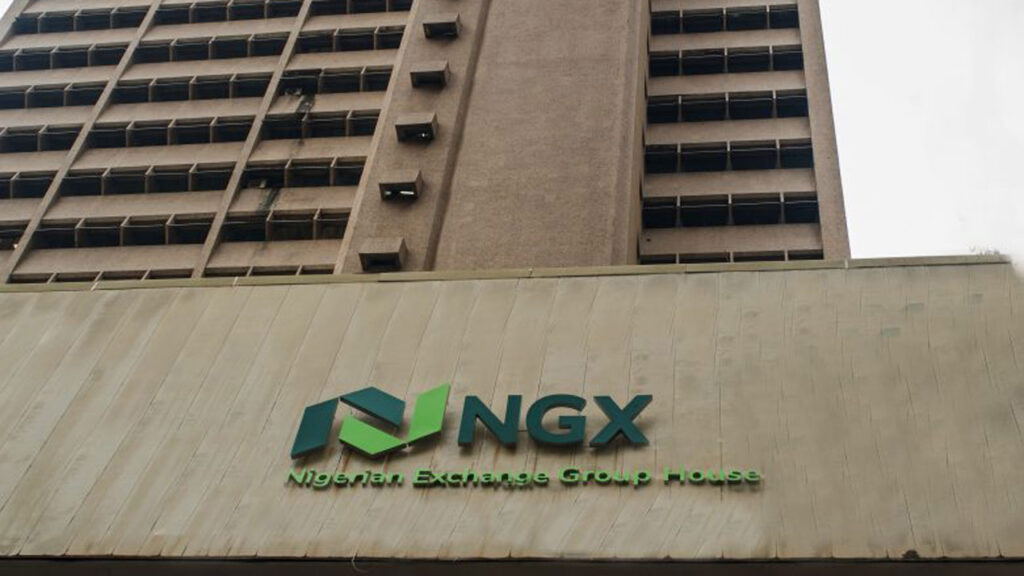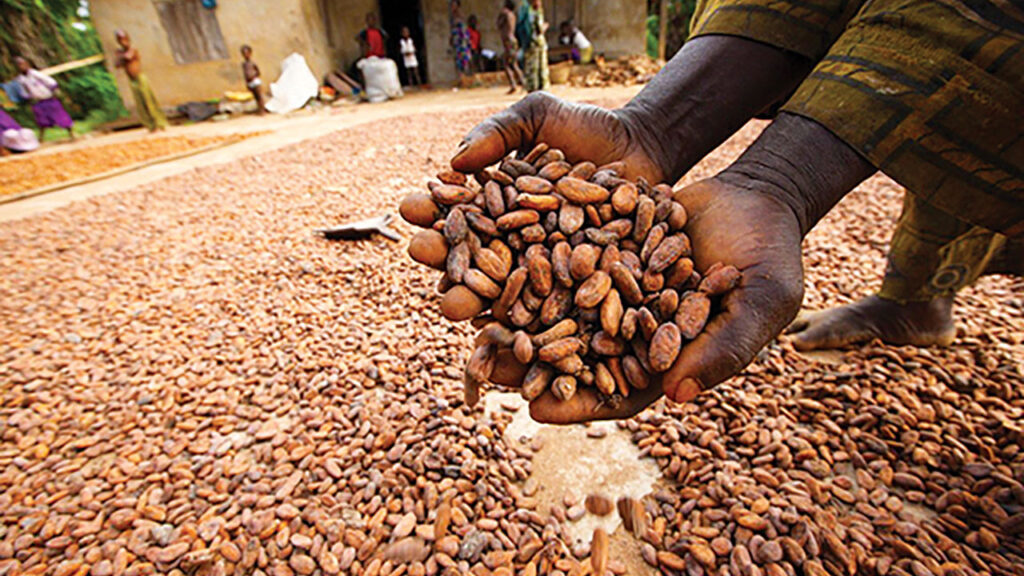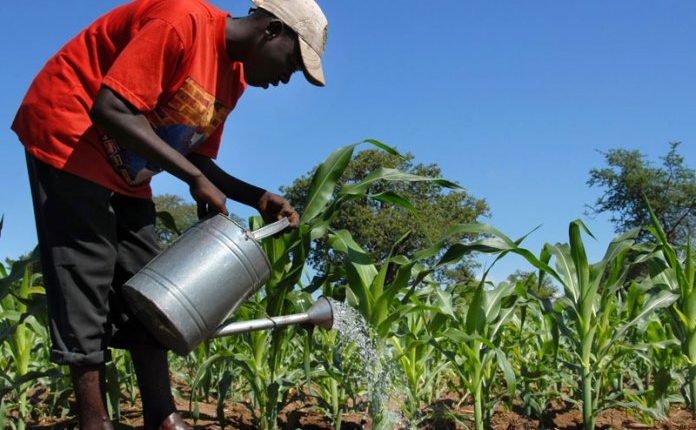
Ben Langat is the managing director, FrieslandCampina WAMCO. In this interview with TOBI AWODIPE, he spoke on the state and challenges of Nigeria’s dairy industry, improving local milk sourcing and why the government must engage in consultative positioning with local industries and manufacturers.
To what extent have you developed local content for your products?
From a milk production point of view, Nigeria has a hot, humid environment which typically is very good for beef cattle and that is why you see a lot of the Fulani cows doing very well. To grow high milk-yielding cows, you have to put in extra effort and this is what we have been doing for many years. For over 12 years, FrieslandCampina WAMCO has continued to invest in the Nigerian dairy sector, as it has been sourcing raw milk locally for manufacturing. We are also the highest off-taker of fresh milk produced locally from five states in Nigeria. Right now, we’re running several factories, the evaporated milk, powder, yoghurt and mobile yoghurt factories. The yoghurt factories are running on local milk, so we can say we have brands that are 100 per cent Nigerian in our portfolio. However, to be able to meet the total dairy nutrition demands in a country as large as Nigeria, the local milk currently available is still very much inadequate. So in my opinion, the model that the country will run will still have a reasonable mix of importation of some of the raw materials, while local content is developed over a period of time.
You declared N324.7 billion in revenue at your 50th AGM, which marked 21 per cent growth over your 2021 figures; how were you able to achieve it and even became more visible in the market?
If there was a year where businesses that are not strong could have slipped, made huge losses or shut down, it was 2022. It was an extremely slippery year. Some businesses actually shut down. We try as much as possible to protect our business by ensuring that we get margins that enable us reinvest. So when costs go up, we do what is called Revenue Growth Management; a combination of many things beyond pricing. When you do Revenue Growth Management, you look at affordability, what the people can afford. There are many ways to deal with that. Sometimes it is about the price; sometimes it’s about the grammage or pack sizes. The disposable income of a lot of Nigerians has not gone up but prices have gone up. As a nutrition company making nutritious products for consumers, which is better; to let consumers consume a little at a certain price or to miss it completely because they cannot afford it? So what we do is make product offerings that our consumers are able to afford. Sometimes we do downsizing, other times direct price increases and even value engineering to see how to substitute raw and packaging materials for cheaper sources so that against all odds, Nigerians still get the vital dairy nutrition we all need. Thus we are then able to manage costs, maintain a good margin and re-invest in our brands.
How much of a Nigerian company is FCW, especially now that you have marked 50 years of corporate existence?
We are truly a Nigerian business. First of all, WAMCO, an acronym for West African Milk Company, was registered in 1973 as a corporate entity. Then it became Friesland Foods WAMCO Nigeria PLC in 2005 and FrieslandCampina WAMCO Nigeria PLC in 2009. Today, we are Nigeria’s favourite dairy nutrition company. Our flagship brand, Peak Milk, has been in the Nigerian market since 1954. It first came into Nigeria through an import model and I think so far, Peak Milk has nourished almost every Nigerian I have interacted with at some stage of their lives. So FrieslandCampina WAMCO is Nigeria’s foremost dairy company and Peak is Nigeria’s foremost milk brand. Next is Three Crowns Milk, another iconic brand that has been here for over 30 years; also nourishing Nigerians all through this period and we are very proud of that heritage. Furthermore, we are also very proud that we are the first company that truly went into local dairy development, as far back as 1984. We are truly Nigerian. When the country gained independence in 1960, Peak was already here; nourishing Nigerians with quality dairy nutrition. Our brands are localised and we are truly a part of Nigeria’s history.
What sustainability steps are being taken to improve local sourcing of milk while promoting animal welfare, protecting the environment and promoting conservation in Nigeria?
Nigeria’s cattle population is about 20.7 million and they are well scattered across the country, which means that from a density point of view, it is not a major threat to the environment. The cattle numbers are not as high as what is seen in other countries like The Netherlands that are small yet have lots of animals. Having said that, our dairy development initiative is currently on going in Oyo, Osun, Ogun, Ondo, Kwara and in the North. In these locations, we are working with about 12,000 farmers. Most of them are pastoralists who have cows that roam about. This means that in terms of carbon footprints, there are no major issues. The issues to focus on are resources like water, afforestation, grass and pasture use and so on. To this end, we train and support these farmers; help them grow trees within their communities, which form part of our dairy development sites. When these farmers deliver milk during the rainy season, we plan to give them seedlings from our farm in Fashola, Oyo State, where we do pasture development in collaboration with Barenbrug, one of the world’s leading hybrid pasture seed production companies. We also help them with pasture development and show them how to use the pasture for cattle grazing in sustainable ways that do not encourage soil erosion or any form of deforestation. All this is coming at a time when the world has moved so high up on the sustainability agenda and thus there is already a lot of knowledge on what to do.
How do you deal with FX rationing and scarcity and what really is the percentage of local content in your products?
We are proud to say that some of our products are 100 per cent locally sourced and very well priced like NuNu Yoghurt which comes in sachets that mothers can easily add to their children’s school lunch boxes. However, in terms of the dairy nutrition needs of the country, local milk sourcing is still at a very low level. It’s such a big task that we have ahead of us as a nation. That notwithstanding, we want to prove that it is doable, as we source about five million litres of milk per annum locally today. We are the highest so far as no other organisation has reached that number. However, we’re talking about a country that requires more than 100 million litres of milk, so when you do the calculations, you would see that the percentages are still low. There is still a long way to go. Countries like Kenya and South Africa started local dairy development way back and they have continued on that journey. Nigeria kind of left this topic for a long time and that is why we are still in this phase of backward integration.
What impact do your dairy activities have on employment in your host communities?
We are doing all the right things if you look at it from the employment perspective. Among the 12,000 farmers we work with, there are about 1500 Fulani women, who basically have been at home, not fully engaged. Today, they are productive and have an occupation for which they are being paid regularly and their families are much more prosperous than before, the farmers, their wives and children. In some cases, their mud huts have been rebuilt to brick houses and their children now go to school, which they could not afford before. We have 29 milk collection centres (MCCs) in the country. These are physical locations with an average of five people who are directly employed. The farmers producing the milk are different from the riders who deliver the milk to these MCCs. Then we have the extension officers and milk truck drivers. If you go on the routes to Oyo, Abeokuta or Ibadan and stand somewhere along the road, you would see quite a few of our milk trucks carrying raw milk from the MCCs. That said, there are tens of thousands of people who are engaged in all of these activities both directly and indirectly.
Of the challenges that beset your industry, which poses the greatest threat to your operations and how are you dealing with it?
We have two very big challenges from a manufacturing point of view. The first is the FX shortage. Any manufacturer in Nigeria even with the best backward integration strategies will need substantial foreign exchange. We don’t produce the required machinery locally neither do we produce all raw materials locally; so there will always be something that needs to be imported. The low amount of FX available in the market is enough to shut down many businesses as we are already seeing. When a country is having such a huge FX shortage, the price would be paid somewhere along the line. Eventually, businesses shut down, impacting employment. FX supply is extremely important. Actually, you can only develop local industries if you have enough FX to bring in technology and equipment and then generate the profitability to be able to run your own training schools and build technical capabilities until you have the industry. So, one is an enabler for the other. I believe FX is a big issue, not just for us, but also for every other big company. For us specifically, the second threat is insecurity within our dairy development host communities. In 2021, we had a big issue when there was insecurity around the Southwest and some of our MCCs were vandalised as a result of clashes between the pastoralists and locals and we had to shut some of them down. Our milk collection in the first quarter of 2023 is 42 per cent above last year’s figure for same period because there is better security this year. So you can see that when it comes to expanding our milk collection, security alone can have a big impact. So FX and insecurity are the biggest challenges we face, however we have others like poor infrastructure, poor electricity supply, bad roads amongst others.
How then have you dealt with these problems?
We have had to restrict our FX needs as much as possible and source the necessary ones by any legal means. We sometimes source from commercial banks in addition to whatever the Central Bank is able to make available. Also, some of our service providers are able to source FX and supply us products in Naira. This invariably means that the cost of raw materials will go up and ultimately affect the retail prices of our products. On insecurity, we have regular conversations with relevant government security agencies. We will never risk the lives of our people. When we have security challenges in areas we operate, we pull out temporarily. For instance, a large farm was given to us in the north, the Bobi Reserve, by the Niger state government for dairy development. However, after two years, we were faced with the issue of banditry and had to withdraw from the location in order not to risk the lives of our people.
As competition intensifies and consumer spend dwindles, how are you still able to stand out?
In the face of the dwindling purchasing power of consumers, like I said, we try to play with Revenue Growth Management. Sometimes we reduce the size of the packs, other times, we try to price products in ways that keep them affordable for our customers or change the configuration of the product to make it more affordable. We also play along innovation just like you see in the case of NuNu Yoghurt, which we launched last year at fifty Naira per sachet. We have many brands like Peak, Three Crowns, Infant Nutrition and others; now we are looking at products that can be locally sourced so that we can take away or significantly reduce the FX implication. NuNu Yoghurt is made from 100 per cent local milk and is produced in a unique mobile factory; the first of its kind in Africa. Thus from local milk, we have been able to produce this nutritious and healthy yoghurt for school children. What has happened in the market is that the fifty Naira price point has been vacated as very few people still produce anything worth fifty Naira. We are however able to achieve that with locally sourced milk. It’s not everywhere yet; it’s predominantly in Lagos but we are ramping up. The more local milk we are able to collect, the higher the quantity we would produce of this affordable yet highly nutritious yoghurt.
We also introduced Milky Pap, which is a tasty and nutritious multigrain cereal with milk; another innovation, which is also affordable. What makes us stand out from competitors is that we have very strong brands as well as strong execution in trade. One of the biggest strengths we have as a company is our Route to Market. It has to do with the way we distribute our products across the country. At the moment, we have reached over 320,000 active outlets in the country. Very few competitors have that reach and that is why you can go to any part of the country and find Peak Milk, Three Crowns or a brand from us. So we have a combination of strong brands, a strong distribution network and great marketing communication, which in my view is probably one of the best. Next is innovation; we have been able to get the basics right. Additionally, talking about our backward integration, we are now in eight states in Nigeria and work with over 12,000 farmers of which 1,500 are women. We work with 23 dairy cooperatives; collect over 40,000 litres of milk daily at peak periods and have best-in-class raw milk quality, one of the best in Africa. We have 29 MCCs and our own locations where we do dairy development. We have the Maya demonstration farm in Oyo state, which is near completion and is going to be open soon. We also have another large farm, about 300 hectares which we are developing in Fashola, Oyo state. We recently just signed another MoU for a big farm in Jos, which interestingly, is where we started our dairy development in the 80s and now we are going back there. The farm sits on 172 hectares. These are all locations where we carry out or will carry out best-in-class dairy development.
In addition, we are introducing crossbreeds into this market with a cow called Girolando from Brazil. As I stated earlier, the reason dairy has not been successful in Nigeria in the past, is partly because of the hot and humid environment. So if you bring a cow from such climes to Nigeria, the cow will struggle to survive. In Brazil, they were able to successfully crossbreed a local cow with Holstein Friesian until they produced the breed called Girolando, which is very hardy, with a big body size and high milk production. So armed with this knowledge, under the Value4Dairy Consortium, we are working with Urus, the world’s largest cattle genetic company to improve the milk yield in our local cows through crossbreeding. Last year, 1400 Girolando semen straws were produced and 610 artificial inseminations were achieved. 30 crossbreed Girolando calves have been birthed till date, the first of its kind in Nigeria. Now this is different because we do not have to worry about the cows because the weather in Brazil and Nigeria are quite similar; hot, humid and tropical. We are rolling out this programme across the 12,000 farmers we work with. The crossbreed Girolando cows are also what we will have on our own farms. In terms of volume, the yield of a Fulani cow, which has not been crossbred, is about one or two litres per day. The Girolando cows can do an average of 20 litres per day. We have to continue crossbreeding to improve the productivity of more cows in the country. This is a real game-changer I am happy to share.
There has been this debate about what type of strategy in terms of cattle breeding is best for Nigeria, which strategy do you think is best for us?
Again, the definition of ranching in this country is a bit misunderstood. Ranching involves using huge portions of farmlands to rear many cows typically for beef. Smallholder or large-scale dairy farms are normally also large farms but you find that the cows are in a confined location. In ranches, the cows roam. In dairy production, the cows however are in large numbers similar to what you see in the Middle East, for example, the Almarai farms. In Pakistan, we have a farm that has about 7,000 cows in one location, in very long dormitory-like structures. That is a large-scale dairy farm. To answer your question, we believe that it will be a combination of all of them but the most effective in changing the country’s dairy development will be settled smallholder dairy farms. We have some of such farms that we have worked with for many years like Smap Farms and Genius Farms. These are farmers that typically have between 20 to 50 acres and keep up to 50 cows or less. They are all settled in one location, produce the feed and typically have water in their locations. If they need veterinary services, they go to their farms. That said, we still work with the pastoralists. The difficulty is that we have some pastoralists that have up to 500 cows.
One of the challenges is that we can’t control in-breeding. We also cannot effectively carry out artificial insemination for improved milk productivity. However, we still work with them because we want to improve their livelihoods through good dairy farm practices. Settled smallholder farmers are the best because they have up to ten to fifty cows and can produce 100-300 litres in a location, making it easy to form them into cooperatives for milk collection. Additionally, for communities that are not traditionally cattle farmers, the smallholder models work better. We have seen some people who are not traditionally cattle farmers go into dairy farming because they have land and can learn as they grow. They can fence their farms and grow feed. They don’t have the culture and tradition to roam around so it is a business that is easy to control. Therefore, I believe placing an emphasis on as many smallholders as possible with a view to growing local capabilities and capacity is the better approach and an important building block for a strong sustainable dairy sector in Nigeria.
How has your Dairy Development initiative improved the earning power and lifestyle of local farmers?
It’s a day and night comparison. For example, we collect about 40,000 litres of milk in a day during peak periods. Multiply that by 300 Naira as that is the price we pay the local farmers per litre. That is the amount of money that goes into those communities every day. So when you go to those communities today, you will see a big change. I am always pleased whenever I visit Fashola. Today you see nicer homes, schools being developed, and children looking healthy going to school. You see some trading because they have cash. Our presence in Fashola ensures they have a ready market for their milk and it does not go to waste. The local farmers usually give their own testimonials in a manner that makes us feel very proud of what we do.
What recommendations would you give in terms of improving fiscal policy, taxes and so on because of the risks and challenges in that area?
The ease of doing business in Nigeria can be better. There are lots of difficulties and it is not improving to be honest. I already talked about the challenges we face in sourcing FX. FX is not about exporting jobs and importing products. It is about building capability locally so that you are able to produce and create local jobs and also create wealth to be able to produce. In addition, every now and then, we have new policies, taxes and duties that we have to deal with. For example, our basic packaging materials are food grade. If you classify them otherwise and charge high excise duties on them, it increases the cost of food packaging. A good example is the lacquered tinplate that we use for Peak Milk; if it is classified same as tinplate used for other purposes, the cost of nutrition would go up. These are the kind of taxes that we face in the country. So I will say the entire fiscal policy needs to be reviewed to ensure anything that truly affects food and nutrition is given the right tax break. The efficiency of tax administration is another issue. I think the interpretation of the taxes as it is laid down is sometimes subjective.
So you can have two people interpreting the same thing differently, assigning different Customs HS codes to the same item. This sometimes ends up stalling business purely as a result of poor coordination. Then there are knee-jerk reactions. If you are doing something like backward integration, it needs to be done after due consultation. It needs to be systematic, strategic and should include all the stakeholders. If you want to talk to organisations about dairy development, start with us. We have been here and our products have been here since 1954. Our factory was built in 1973. You can’t do a short business trip to Denmark and come back to announce a ban on the importation of milk because there are cows around. There has to be a reason why things are the way they are. So consultative positioning is very important. That is really my hope for the current government; that they are going to consult us as industries and manufacturers, and listen to us.
Now that there is a new government, what is your expectation?
I expect that they would consult us on dairy development topics because we are a subject matter expert on local milk sourcing and knowledge transfer. They can engage us on some of these topics leveraging forums like Manufacturers Association of Nigeria (MAN), Nigeria Employers’ Consultative Association (NECA) as well as the Food and Beverage Associations (AFBTE) and so on. We are there as industry leaders, let them consult us before taking sharp policy decisions.












